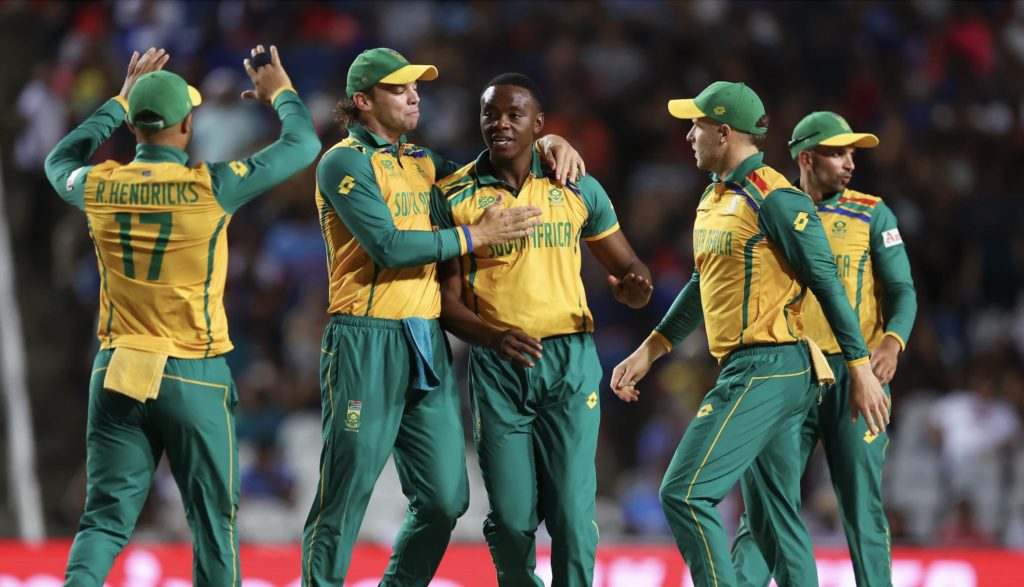It was one step too far for Afghanistan. South Africa are one step away from banishing decades of World Cup disappointment, writes RYAN VREDE.
The Proteas’ semi-final pain loomed over them. In 1992 they lost to England. In 1999 they famously tied with Australia. In 2007 it was Australia again. Pakistan followed in 2009, India in 2014, and New Zealand a year later. Finally, a year ago, Australia were once again the vanquishers.
Now they’ve gone a step further.
The match was over before Proteas disciples’ 2:30am coffee was cold. As noted, the cricket gods have been cruel to the Proteas in World Cup semi-finals. This time they gifted them a wicket that could not have been more kind to their seamers.
This, remember, was an Afghanistan lineup that out-batted New Zealand and Australia at the tournament. But on Thursday they had no rebuttal for the Proteas’ quicks, who took seven of the 10 wickets on offer.
Each took wickets in their first over, quickly creating the pressure that only compounded as the innings reached deeper. Tabraiz Shamsi then finished the job, taking three sticks in just 11 deliveries.
The maturity shown was telling. One feels that previous seam-bowling attacks would have wasted the wicket. This one exhibited the type of control that was generously rewarded. The Afghan batters were no match for a unit that has been at the heart of their now eight-match unbeaten run.
As much as the Afghan batters struggled to repel the Proteas’ seamers, so were their bowlers great. Like the Proteas, their bowlers have carried the team on a historic march to the semi-finals.
The chase was never going to be straightforward given the state of the wicket. But Naveen-ul-Haq Murid and Fazalhaq Farooqi tormented them from the outset. The Proteas’ bowlers will get the plaudits, but it would be remiss not to praise the potent pragmatism the batters showed.
This has not been a tournament for the batters. Indeed, one feels for the Proteas in particular, having played their first three matches on awful New York wickets. It didn’t get much easier thereafter, with the wicket in North Sound for their fixture against the USA being the pick of an awful bunch.
This one in Tarouba, inexplicably used for the first time in the tournament in a semi-final, was among the most challenging the Proteas’ batters would have encountered. Chasing anything more than 80 on it would have been an immense challenge. It spat from a length, went sideways off significant cracks, full deliveries rolled under the bat, others still kicked up viciously.
It wasn’t the type of surface Reeza Hendricks, in awful knick throughout the tournament, would have hoped for. But it was perhaps the one he needed. It demanded that he train his focus intensely. Any flaws in his technique would have been found out. He needed to be perfect, and he was. He needed luck, which he got. He goes into the final on Saturday reminded of the excellent cricketer he is.
Ditto Aiden Markram. It could have been so different for the under-pressure skipper. He edged off in single figures, but the wicketkeeper instructed his captain not to refer it. He never looked back from there, blending control and aggression for a 23* that was worth 50.
That the Proteas lost just one wicket on a pitch possessed, speaks to a depth of resilience that has not been commonplace in their World Cup history.
They have one more step to go in Barbados on Saturday. It will be hard. But this team is built to do hard things.
HIGHLIGHTS: Proteas vs Afghanistan (T20 World Cup)
Photo: Robert Cianflone/Getty Images







